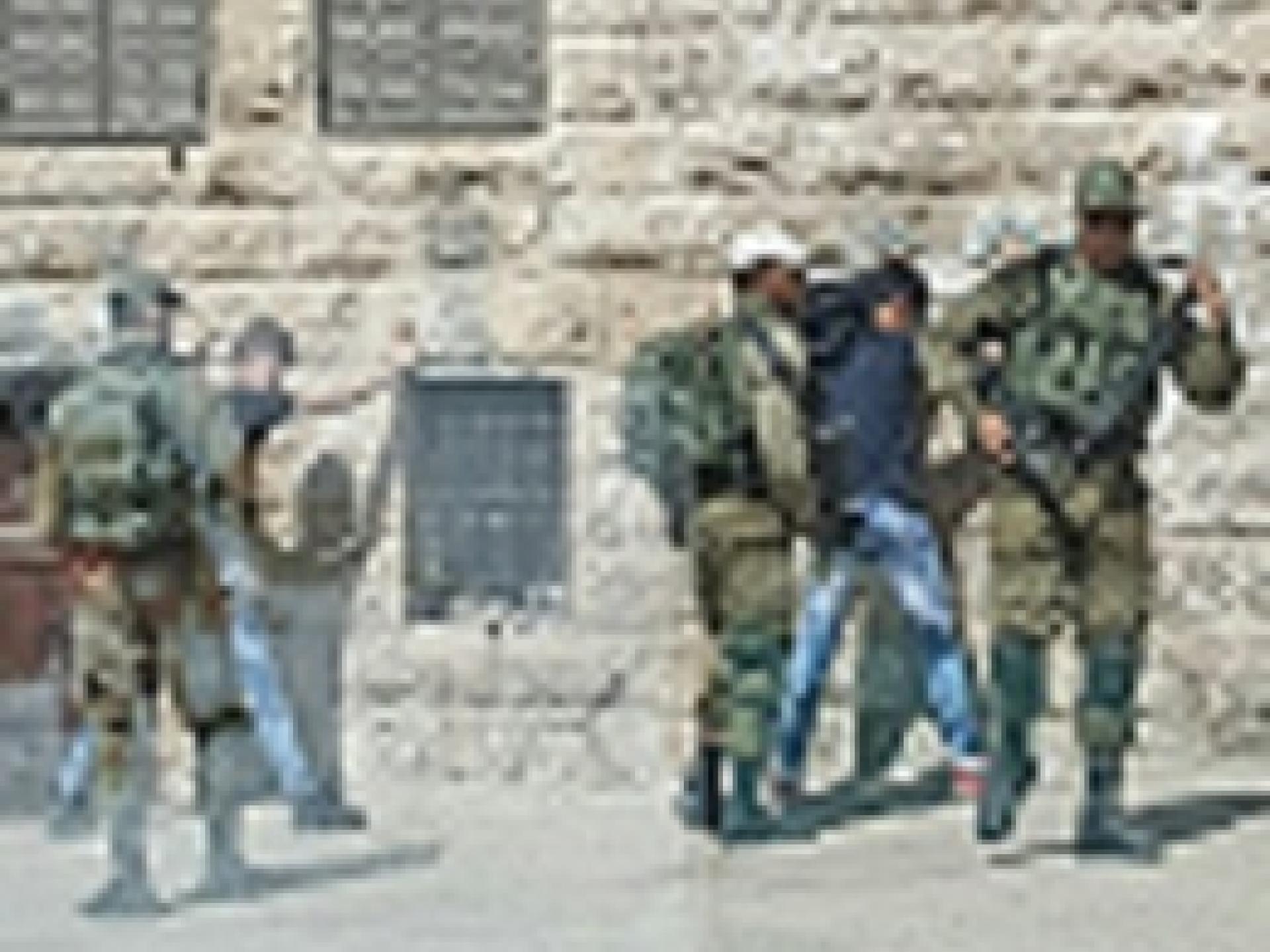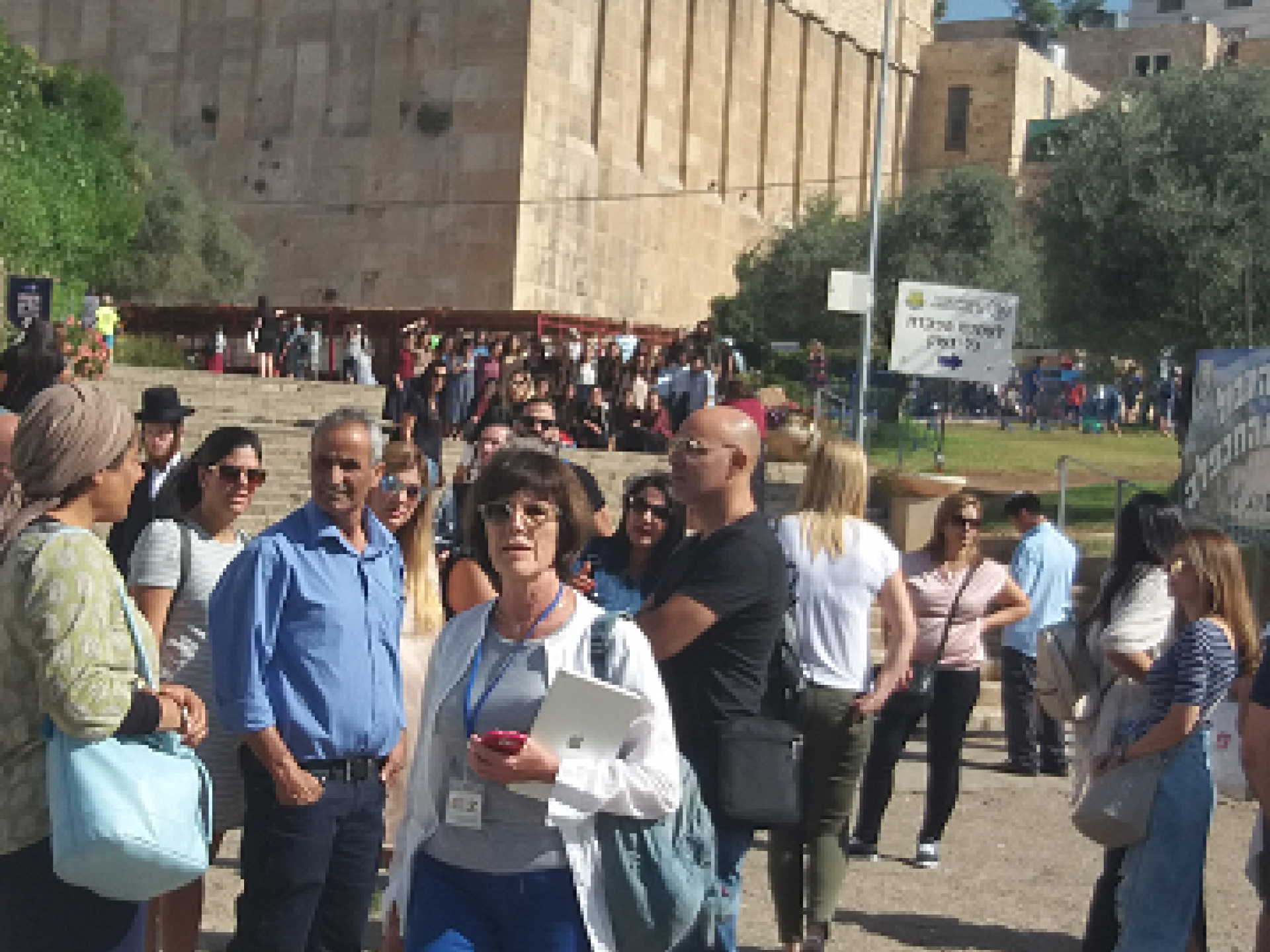Hebron
Until we got to Hebron there was nothing to write about.
In Hebron, masses of buses with women and children of all ages, also from schools. They come to the Cave of the Patriarchs within the framework of the Ten Days of Repentance.
Because of the incident at Har Adar, the soldiers of the Border Police guarding the whole area are tense. They immediately send M. to park far away and not to approach the entrance to the cave in any way.
Jeeps and soldiers are deployed along the route of the worshipers' path, checking the passers-by in both directions.
This sight of young people with their faces to the wall and spread out against it and having their bodies searched from head to toe is as always very difficult to see.
When we ask why this is so we are answered in anger and asked if we do not know what happened this morning. We are told to take care of the Jewish people ... and our soldiers. It is not because of Jewish exceptional, but because of what happened today, what you do not understand.
Next to the Cave of the Patriarchs, we are asked in wonder: "How on this day do you come here? Are you not be ashamed of yourselves? These leftists are disgusting.“
A group of young women who are not religious according to their dress look at us as if we have arrived from the moon. One young woman almost wants to spit on Ariela, who is trying to understand the meaning of this separation. The woman runs to embrace a soldier kissing and greeting him as if in defiance of us. This soldier who answers to Ariela: “I do not want to answer you and should not talk to you at all .”
All the while a young religious woman who is so according to her clothing stands listening and does not attack us. She actually turns out to be a good person to talk to. Livnat is her name.
She speaks calmly and brightly. It turns out that she was born and raised in the Avraham Avinu neighborhood in Hebron and says that she remembers a life of good coexistence between the Jews and the Palestinians as a child. Of course she was not aware of the injustice which was caused then and did not know the Palestinian schools that are so close to her childhood. She admits that what is happening now is very, very wrong. She herself moved to Yavne'el but not to the ultra-Orthodox neighborhood there. Her parents moved to Jerusalem and their apartment in the Jewish Quarter is now leased.
The conversation with her shatters all our stereotypes about the Hebron settlers. Clearly, she thinks that there should be a state of all its citizens, and repeatedly emphasizes equal rights for the Palestinians. She saw no difficulty in believing in God and in the sanctity of Hebron and at the same time living in peace and dignity with her neighbors in full equality of rights. Her opinions are even more compatible than ours on most subjects. She saw the aggressive behavior of secular women on us and gently waited for them to go in order to talk to us.
Because of her, it was possible to bear the terrible energies of this city that is becoming more and more like a large cage.


